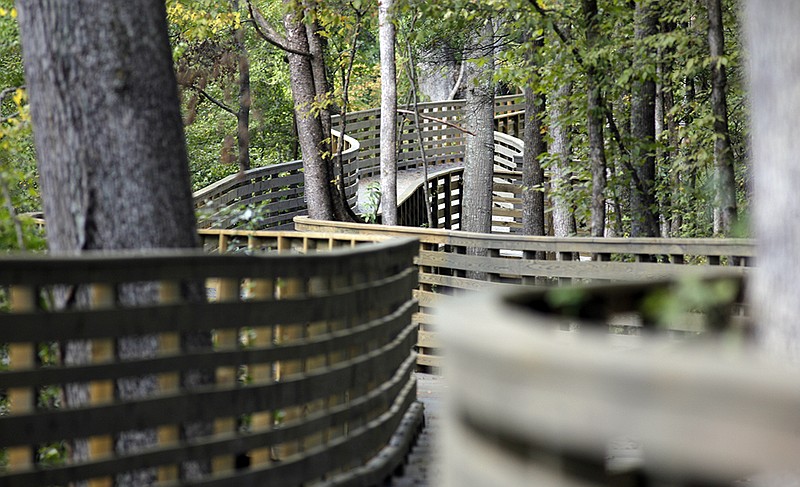As the Chattanooga City Council prepares for a vote on weakening pollution protections for South Chickamauga Creek, members of the public argued for and against the proposal at a council hearing Tuesday.
The city in 2014 adopted rules saying anyone building along the waterway must retain at least the first 1.6 inches of stormwater runoff to keep it out of the creek. Stormwater washes pollutants into the creek and contributes to erosion and sedimentation, which harms water quality and habitat for animals and plants.
Now homebuilders, developers and the real estate industry say those rules have hurt their business, helped push up building costs, and made homes less affordable and available in a market that desperately needs more housing. They say reducing the retention level to 1 inch will still protect the creek, especially with other changes the city is considering to its runoff rules.
Defenders of the creek, though, say the damaged waterway needs the extra protection, and that all the developers want to lower is their own costs for building.
Representatives of both groups spoke to the council at the public hearing, led by the side that wants to reduce the retained runoff to 1 inch.
Mike Price, of MAP Engineering, said the 1-inch requirement means 80 percent of the runoff is filtered. Hamilton County's standard is 0.75 inches, he said. The city's proposed changes, including a 1-inch runoff limit for South Chickamauga Creek, will protect the environment at a reasonable cost, he said.
"Fish or jobs, environment or economy, they're not mutually exclusive," Price said.
The 2014 standards went "way beyond the requirements" of state and federal government, said Bill Raines, of The Raines Group real estate investment company.
"Three years later there is a slowdown in real good quality development," he said.
Dominique Brandt, development director for Habitat for Humanity in Chattanooga, said the organization serves the working poor, whose average income is $22,000 and who pay about $467 a month for their modest homes. Raising development costs hurts that "fragile demographic," she said.
Damon English with the Greater Chattanooga Association of Realtors said higher costs and rising home prices mean fewer people can buy and more must rent. That's a loss of property tax revenue to the city, he said.
Paula Palmer, with Real Estate Partners, described looking for a home in the $180,000-$200,000 range for a client. She said she found only three such new homes in Chattanooga, East Ridge and Red Bank, compared with 19 in North Georgia and 17 in Cleveland.
"I could place people in that price range all day long but developers can't afford to build houses" in that range, Palmer said.
That didn't fly with Rick Foster, who said he's lived for seven years in a neighborhood with a stock of vacant lots that have received no interest from builders or developers.
"They're trying to blame all of Chattanooga's problems on a shortage of starter homes, but that's because builders won't build them, they're not profitable enough," Foster said.
Added Paula Wilson, who said she lives on the creek, "We do have a housing problem here but I think it's more of a poverty problem than a stormwater problem."
Wilson said she sees the impacts of sedimentation and volume daily in the creek.
"If you lower that standard, you'll raise what's going into the environment," she said.
Sandy Kurtz, head of the South Chickamauga Creek Greenway Alliance, pointed out that the city's own engineer, Bill Payne, has said the 1-inch standard will put the city out of compliance with its federal/state sewer permit. Payne told council members last week the city would have to develop unspecified new programs at unknowable cost as a remedy.
Kurtz said the creek is home to two endangered animals, the Chickamauga crayfish and a snail darter. Her group helps maintain the waterway, clearing obstructions, planting trees in retention areas and working to restore it. She said the city should gather more data on how the present rule is working, look at costs and benefits and design what she called a "sustainable plan" with more public input than from just "special interests."
The proposed change could come up for a vote as soon as Nov. 21.
Contact staff writer Judy Walton at jwalton@timesfreepress.com or 423-757-6416.
